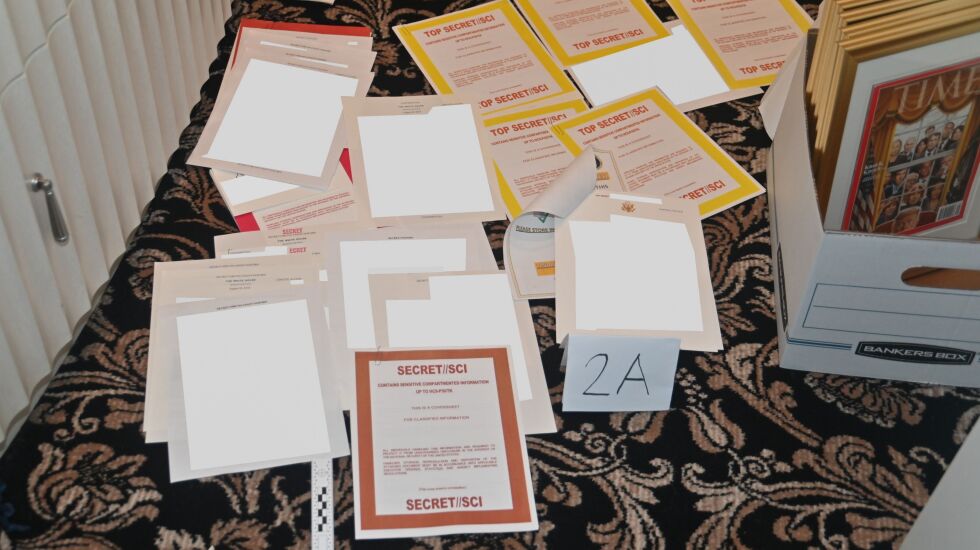
In May 2022, Donald Trump received a federal subpoena demanding all the documents with classification markings that remained in his possession at Mar-a-Lago. At that point, SiriusXM talk show host Megyn Kelly suggested in an interview with the former president last week, he was legally obligated to surrender those records.
“I know this,” Trump replied, then immediately corrected himself: “I don’t even know that, because I have the right to have those documents.” That startling response epitomized the lazy arrogance that Trump displayed in January 2021, when he removed thousands of presidential records from the White House, and during the ensuing year and a half, when he stubbornly resisted efforts to recover them.
In addition to 32 counts of willfully retaining national defense information, that pattern of defiance resulted in eight obstruction-related charges, which may pose the most serious threat to Trump’s continued freedom. While the other three indictments against Trump face formidable obstacles, including controversial legal interpretations, complicated narratives, and difficult questions of knowledge and intent, the story behind the documents case is relatively straightforward: Trump took a bunch of stuff that did not belong to him and refused to return it.
Trump disputes both parts of that story. Under the Presidential Records Act, he told Kelly, “I’m allowed to do what I wanna do” with government documents, classified or not.
That is a counterintuitive reading of the statute, which says “the United States shall reserve and retain complete ownership, possession, and control of Presidential records.” Those records include all documents a president produces or sees in the course of his work, except for material “of a purely private or nonpublic character.”
As Trump noted in his interview with Kelly, that law was a response to “Richard Nixon, because he kept everything.” Yet Trump claims the law is no bar to his similar assertion of complete discretion over the fate of presidential records.
‘I’m allowed to have those documents’
Even if Trump had a credible argument to that effect, Kelly noted, that did not give him the right to defy a federal subpoena. If Justice Department officials had asked him for the classified material at Mar-a-Lago, Trump insisted, “I would have given it to them.”
But that is not what happened. Through his lawyers, Trump said he had complied with the subpoena by surrendering every responsive document. That was not true: During its Aug. 8 search of Mar-a-Lago, the FBI found 102 additional records marked as classified.
When Kelly pointed that out, Trump preposterously claimed, “I just don’t know the timing” of those events. “All I know is I’m allowed to have those documents,” he said.
Trump could claim he accidentally overlooked some documents with classification markings. But that defense would be complicated by conversations in which Trump reportedly suggested hiding the documents, his clandestine removal of file boxes from the storage room his lawyers searched, and his alleged attempt to cover up that cover-up by instructing his underlings to delete security camera footage.
Instead, Trump is suggesting he did not have to comply with a subpoena he claimed to be obeying. This does not seem like a winning legal strategy.
Kelly also asked Trump about the top-secret Defense Department document he allegedly waved around during a July 2021 meeting with two people working on his former chief of staff’s memoir. A recording shows that Trump said the “highly confidential” document contained “secret information,” adding that “as president, I could have declassified it,” but “now I can’t,” so “this is still a secret.”
Trump later told Fox News anchor Bret Baier “there was no document” — only press clippings. When Kelly asked him to reconcile that claim with what he said at the time, Trump replied, “I’m not going to talk about that, because that’s already been, I think, very substantiated, and there’s no problem with it.”
Trump told Kelly he plans to testify in his own defense. For his own sake, his lawyers should try to talk him out of that.
Jacob Sullum is a senior editor at Reason magazine.
Send letters to letters@suntimes.com







